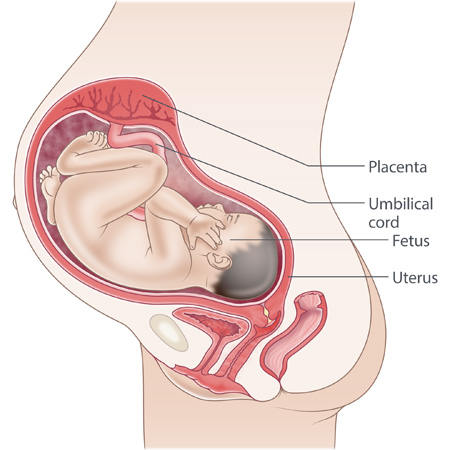
Week 34 of Pregnancy: A Comprehensive Guide
Introduction
Pregnancy is a transformative journey, and each week brings new developments and milestones. At 34 weeks, you’re entering the final stretch, and your body and baby are preparing for the grand finale. This comprehensive guide will provide an in-depth look at week 34 of pregnancy, covering everything from physical changes to fetal development and common concerns.
Physical Changes
- Weight gain: By week 34, you’ve likely gained between 25 and 35 pounds. Most of this weight is attributed to the growing baby, placenta, amniotic fluid, and increased blood volume.
- Belly growth: Your belly continues to expand as the baby grows and fills the available space. You may notice stretch marks appearing on your abdomen, breasts, and thighs.
- Breast changes: Your breasts are preparing for breastfeeding. They may become larger, tender, and produce colostrum, a yellowish fluid that precedes breast milk.
- Varicose veins: Increased blood volume and pressure can lead to the development of varicose veins, especially in the legs and vulva.
- Hemorrhoids: Hemorrhoids, swollen veins in the rectum, are common during pregnancy due to increased pressure on the pelvic area.
- Frequent urination: The baby’s position can put pressure on your bladder, leading to frequent urination.
- Constipation: Pregnancy hormones and iron supplements can slow down digestion, causing constipation.
- Heartburn: As the uterus expands, it can push up on your stomach, causing acid reflux and heartburn.
Fetal Development
- Size and weight: At 34 weeks, your baby is about 17.5 inches long and weighs around 4.5 pounds.
- Appearance: The baby’s skin is becoming less wrinkled and more plump. Hair is growing on their head, and their fingernails are fully formed.
- Brain development: The baby’s brain is rapidly developing, and they are becoming more responsive to external stimuli.
- Movement: You may notice a decrease in fetal movement as the baby has less room to move. However, it’s still important to monitor their activity levels.
- Position: The baby is likely head-down in preparation for birth. However, they may still move around occasionally.
- Lungs: The baby’s lungs are almost fully developed and preparing for independent breathing.
- Bones: The baby’s bones are becoming stronger, but their skull remains soft and pliable to facilitate delivery.
Common Concerns
- Preterm labor: Preterm labor is defined as labor that begins before 37 weeks of pregnancy. If you experience any signs of preterm labor, such as regular contractions, vaginal bleeding, or fluid leakage, seek medical attention immediately.
- Gestational diabetes: Gestational diabetes is a type of diabetes that develops during pregnancy. It can cause high blood sugar levels, which can affect the baby’s growth and health. If you have any risk factors for gestational diabetes, your doctor may recommend a glucose tolerance test.
- Preeclampsia: Preeclampsia is a condition that develops during pregnancy and is characterized by high blood pressure and protein in the urine. It can be dangerous for both the mother and the baby, so it’s important to monitor your blood pressure and report any symptoms to your doctor.
- Placental abruption: Placental abruption is a condition in which the placenta separates from the uterus before the baby is born. It can cause severe bleeding and can be life-threatening for both the mother and the baby. If you experience any sudden or severe abdominal pain, vaginal bleeding, or contractions, seek medical attention immediately.
- Breech presentation: Breech presentation occurs when the baby is not head-down in the uterus. While most babies turn head-down by week 34, some may remain in a breech position. Your doctor will discuss the options for delivery if your baby is breech.
Tips for Week 34
- Attend prenatal appointments: Regular prenatal appointments are essential for monitoring your and your baby’s health.
- Monitor fetal movement: Keep track of your baby’s movements and report any changes to your doctor.
- Eat a healthy diet: Nourish your body and your baby with a balanced diet rich in fruits, vegetables, and whole grains.
- Stay hydrated: Drink plenty of fluids, especially water, to prevent dehydration.
- Exercise regularly: Moderate exercise, such as walking or swimming, can help improve circulation and reduce discomfort.
- Get enough sleep: Rest is crucial during pregnancy. Aim for 7-9 hours of sleep each night.
- Manage stress: Stress can affect your pregnancy and your baby’s health. Find healthy ways to manage stress, such as yoga, meditation, or spending time in nature.
- Prepare for childbirth: Start thinking about your birth plan and make any necessary arrangements, such as choosing a hospital or midwife and hiring a doula.
- Enjoy this special time: Pregnancy is a precious journey. Take time to appreciate the moment and bond with your baby.
Conclusion
Week 34 of pregnancy is a significant milestone, marked by both physical changes and fetal development. By understanding the common concerns and following the tips provided, you can navigate this stage with confidence and prepare for the exciting arrival of your little one. Remember to communicate any concerns or changes to your doctor and enjoy this special time in your pregnancy journey.